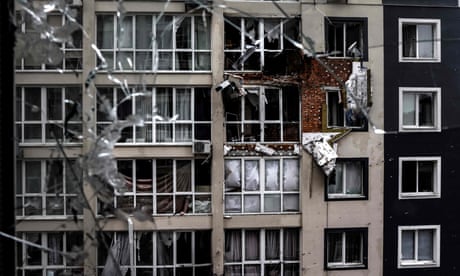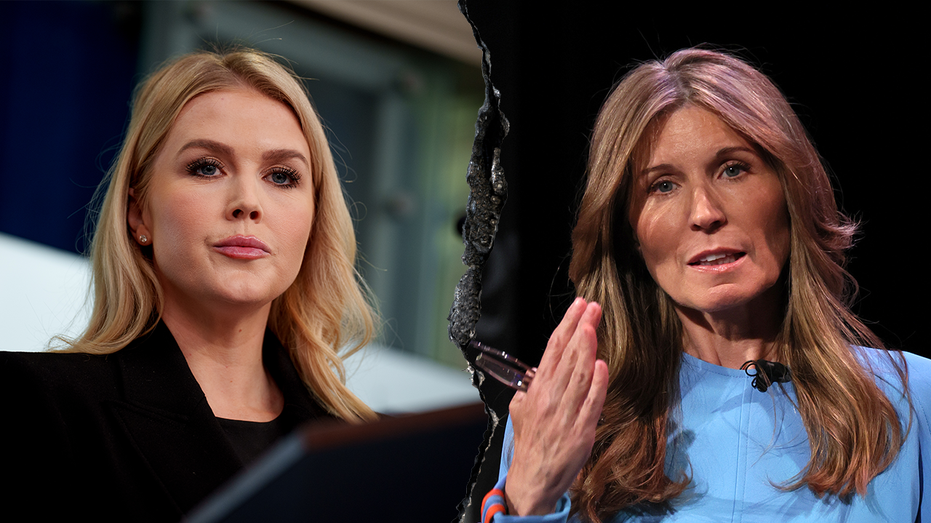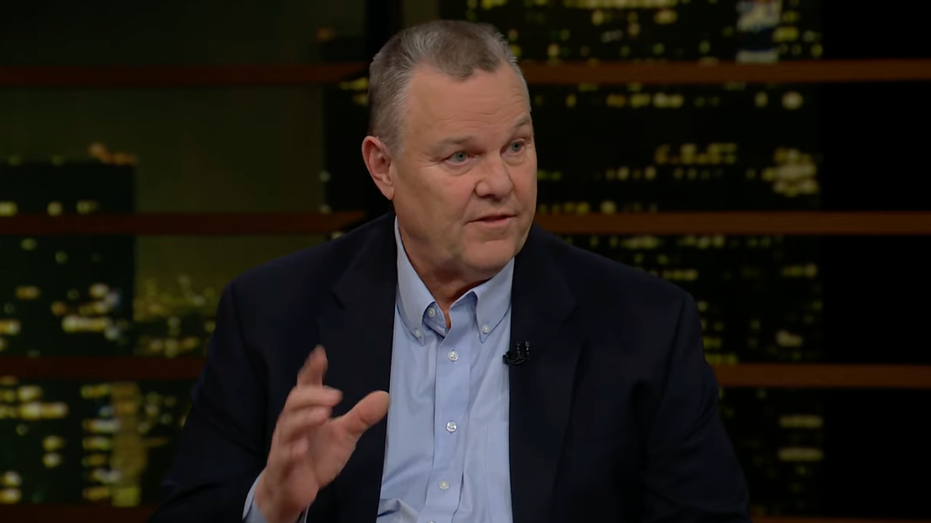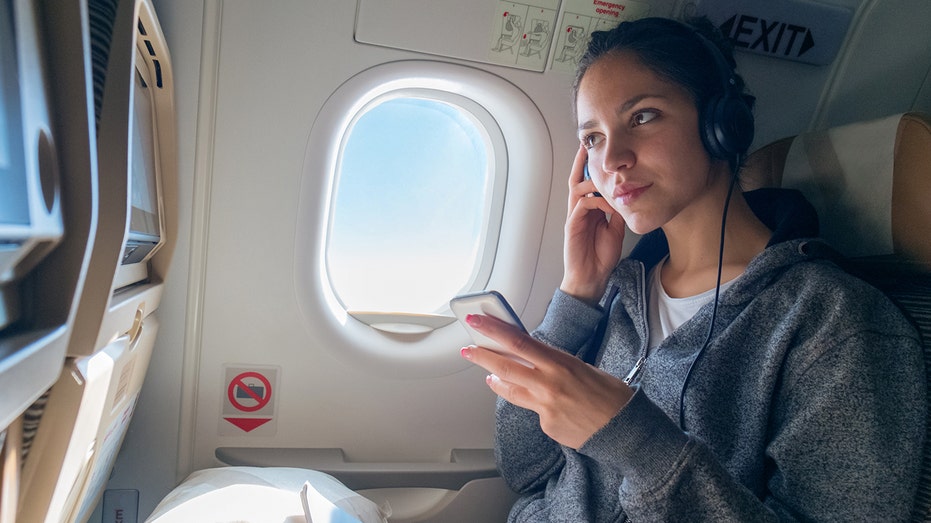- by foxnews
- 09 Mar 2025
‘It was like a movie’: recaptured Bucha recounts violence of Russian invasion
‘It was like a movie’: recaptured Bucha recounts violence of Russian invasion
- by theguardian
- 04 Apr 2022
- in news

It was, said Taras Schevchenko, like a scene from a film.
At 6am on the morning of 24 February, from the vantage point of the kitchen window of his fifth-storey apartment overlooking Gostomel airport, on the northern outskirts of the Ukrainian town of Bucha, Schevchenko watched as about 20 Russian helicopters flew into vision, spilling paratroopers on to the tarmac below.
"I felt as if I was in the movies, you know, I saw all the helicopters, I even saw the faces of those paratroopers."
This was the moment that the war began for Bucha, a town 35 miles north-west from the Ukrainian capital, Kyiv, which is swiftly becoming synonymous with the worst atrocities of Vladimir Putin's war in Ukraine.
The events that unfolded over the following days, Schevchenko, 43, said, were unimaginable.
Bodies rolled over by tanks turned into "human rugs" while Russians shot dead even the elderly who got in their way, he said.
Russian snipers shot the men who tried to escape across fields, it is claimed, and claims of the rapes and murder of young girls, which have yet to be independently verified, put terror in the hearts of those who remained.
As witnesses have come forward, however, and photographic evidence of bodies on Bucha's roads has emerged from the newly recaptured territory, the claims of mass war crimes by the occupying Russian troops appear to be all too real.
On Sunday, Ukraine's military published footage of what appeared to be a torture chamber in a basement, with a barracks in an adjoining room.
A line of bodies were found, hands tied. They were crouched facing a wall. The military said at least one victim's kneecaps had been shot first before he received a bullet to the head.
Mass graves containing 280 bodies were also found around the town after the initial discovery on Saturday of 20 bodies by the side of a road. "All these people were shot," Bucha's mayor, Anatoly Fedoruk, said.
Schevchenko, a martial arts coach in a kindergarten, and his mother, Yevdokia Shevchenko, 77, with whom he lived in the north of Bucha, recalls that it had gone quiet for three days after Putin's troops landed.
They talked about what to do, whether they should escape. Those few who decided to leave on that first day were seen as overreacting by the majority of those in Schevchenko's block.
The normality of those first 72 hours was an illusion.
"We saw them [the Russians] on the third day when there was a massive shootout by our building with Bucha's territorial defence. At first I decided to stay because I was thinking: where to go? I had nowhere to go. There was fear, you know. Secondly, we aren't that rich to completely change our lives in one day. On the third day, I realised that it is too late to run away somewhere or change something because the war was literally around my house, on my street. There were tanks driving down my street. It is very frightening when they shoot, it's such a sound, a roar."
By day four, there was panic. "Everybody was looking [for] some ways out of there on the internet, Telegram or Viber chats. Anyone who had their own cars just fled, risking everything. Our building has 69 apartments and there are only four families remaining."
Schevchenko's mother, Yevdokia, terrified by the fighting on her doorstep, moved down into the block's damp cold basement of just 20 sq metres, lit only by candles, where she joined eight other families, including one three-year-old child and an 86-year-old woman.
Yevdokia would stay there for the next 13 days and nights, with only a bucket as a toilet. The older woman, Schevchenko said, may still be in the basement. "She hugged an icon. All the time she was there she was hugging the icon."
On the fifth day, the gas supply to the town was cut off. "People understood that we needed to boil water somehow or cook some soup or something and by the entrance to the building we made a kind of cooking place. It was just a campfire with two bricks on the side."
The conversations by the fire were filled with talks of the latest dead.
"Dead bodies were just laying in the streets, they didn't let us move them," said Schevchenko. He recounted one killing, which could not be independently verified. "There was some grandpa, he was walking with his wife, they were about to cross the street, they were stopped by some Russians. You know how these old men are, just like to talk back and stuff. So they just shot him, and to the woman they said: 'You just keep walking.' She rushed to her husband and started crying, and they said: 'If you want to lay next to him, we can shoot you too.' She told them she needed to take the body, but they said: 'No, just keep walking.' And she kept on walking, crying and walking. It happened next to a McDonald's, 30-40 metres away from my home."
The woman, distraught, approached Yevdokia and others who were standing nearby, struggling to catch her breath and tell her story, desperate to retrieve her husband's body.
"That old man aggressively said something to a soldier and they shot him dead, and ordered the woman to leave," said Yevdokia. "I don't know their names but I would see them around the town in a store, on a market, you know, familiar faces. When he got shot I was outside, I heard the gunshots. I had gone out of the basement to breathe some air."
By 9 March, Schevchenko knew they had to get out - but they appeared to be trapped.
"I started to analyse all the possible ways to escape but I am glad I didn't try then. Because other people who were braver than I was, fled and were shot. Some of them came back wounded but some remained in their cars forever, dead."
The following day, the Russians agreed to establish a humanitarian corridor for the evacuation of civilians. There was an exodus - but the Russians said they would permit only women and children to leave.
"But we had neighbours one floor below and there was a man and I heard that he had managed to get out so I thought if he managed to do it, why can't I? So, on 11 March, I woke up at 6am, and charged my phone. I found a place to charge it. Just a little though to 6-7%. Then I ran to the basement to pick up my mum. I remember very clearly it was 8.45am, I ran in and shouted: 'Mum, we are running away,' and at that moment there was shooting."
His mother's first thought was for the family pet. "She said: 'Did you get Mary?' I said: 'Yes, she is [in] my jacket.' It's a small fluffy dog, just 4 kilos. So we ran to the city hall for the green corridor. But at the city hall, they only let women and children through, so we decided that mum would go by a green corridor and I would join other men and we would walk to Romanivka, it's about 12km away from Bucha, but you had to cross the river and peatlands and it was minus 9 degrees outside that day".
At 10am, Schevchenko started to walk, not on the roads, instead on the fields, with around 20 other men. Bullets started to buzz past them. Some went down, hit and wounded. Others, including Schevchenko, ran and tried to hide from what were assumed to be snipers.
"We couldn't even help the wounded because once you come close to someone who fell you can get shot too. There were fewer and fewer of us. I was constantly looking back and sideways. We didn't care about each other and didn't pay attention to each other. Just some animal instincts took over. I felt like I was a concentration camp escapee."
The route took them through Irpin, another town where alleged atrocities have been recorded since the Russians have withdrawn. Schevchenko made his way to the town's central cemetery, through a forest there and then turned towards the village of Stoyanka leading to his destination of Romanivka.
"The mayor of Irpin said the other day that they have collected 17 dead bodies," said Schevchenko. "I can't say there were only 17. There were way more. Lots of them were just sitting in their cars. Lots of them were laying on the sidewalks, there were a lot of them squashed by tanks. Like those animal skin rugs and the smell was unbearable. They were laying like that for 10 days or so."
For seven hours, Schevchenko ran, walked and hid, in the hope of reaching relative safety. "Then we saw our soldiers. They knew we were refugees, they just asked us to show them our passports and showed us the way. Buses were waiting for us."
Today, he has no idea how many of the 20 or so men who set off made it. "You know, not only did I not look, I forgot how to breathe. I literally forgot you could breathe through your nose. I was breathing through my mouth, my heart jumping out of my chest. My dog, in my jacket, was nervous and stressed."
He was taken by bus to Kyiv's main railway station where he was reunited with his mother.
"You know when I got to safety and some time passed, I felt like it was a prank," Schevchenko said. "It just can't be 15km away and it's quiet. I felt like I was in the movie [The] Matrix. Like someone dragged me by my hair and threw me into this Matrix for 16 days and have been watching how I act. And later they felt sorry for me, pulled me out of there back to the peaceful world, patted me on my head and told me: 'Good, you survived.'"
- by foxnews
- descember 09, 2016
'Speaker scum' on flights sparks debate among travelers: 'This is getting out of hand'
A traveler asked social media users to weigh in on flyers who play audio aloud on their devices and don't use headphones.
read more


